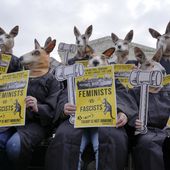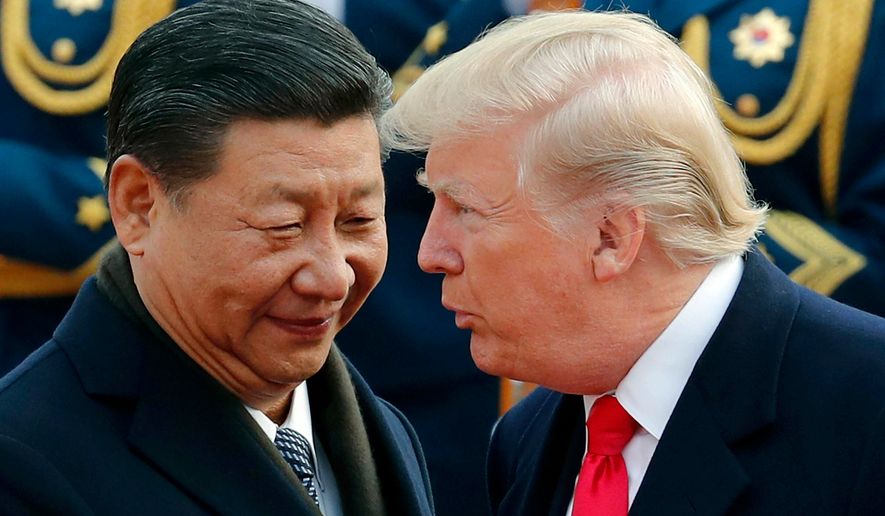President Trump is ready to slap tariffs on nearly $50 billion in Chinese goods, according to reports, reigniting fears of a trade war between the world’s two largest economies.
The president is due to announce the tariffs after the original batch — on about 1,300 Chinese products — was put on hold for trade talks.
He trimmed the list to 800 product categories, Reuters news agency reported, citing industry sources familiar with the list. Some reports set the price tag of the tariffs at between $35 billion and $40 billion.
But that amount is still significant and all but guaranteed to provoke a response form Beijing, which has its own tariff target list of $50 billion in U.S. goods, including soybeans, beef and cars.
China warned Thursday against proceeding with the tariffs.
“The first choice is cooperation and mutual benefit. The other choice is confrontation and mutual loss. China chooses the first,” said Chinese State Councillor Wang Yi. “We hope the U.S. side can also make the same wise choice. Of course, we have also made preparations to respond to the second kind of choice.”
Mr. Trump is using the import tax to counter China’s trade barriers and unfair trace practices, which the president says contributes to America’s $375 billion trade deficit with China.
The tariffs were being finalized as Secretary of State Mike Pompeo was in Beijing, briefing President Xi Jinping and other top officials on the North Korea nuclear agreement struck Tuesday at the Singapore Summit.
He also met with Mr. Wang and addressed the trade issue.
“Our deficit with China is still too high,” Mr. Pompeo said at a press conference with Mr. Wang. “I stressed how important it is for President Trump to rectify that situation so that trade becomes more balanced, more reciprocal and more fair, with the opportunity to have American workers be treated fairly. We had good and constructive discussions.”
Mr. Trump decided to advance the tariffs after returning from his Singapore summit with North Korea dictator Kim Jong-un, where they reached an agreement in principle for Pyongyang to completely dismantle its nuclear weapons in exchange for security guarantees from the U.S.
China, the chief sponsor of North Korea, was instrumental in enforcing international sanctions that helped push Mr. Kim to the negotiating table.
Mr. Trump’s quick pivot to tariffs induced speculation in Washington that he no longer wants to rely on China in dealing with Pyongyang, believing he has his own line of communication and a budding relationship with Mr. Kim.
• S.A. Miller can be reached at smiller@washingtontimes.com.




Please read our comment policy before commenting.